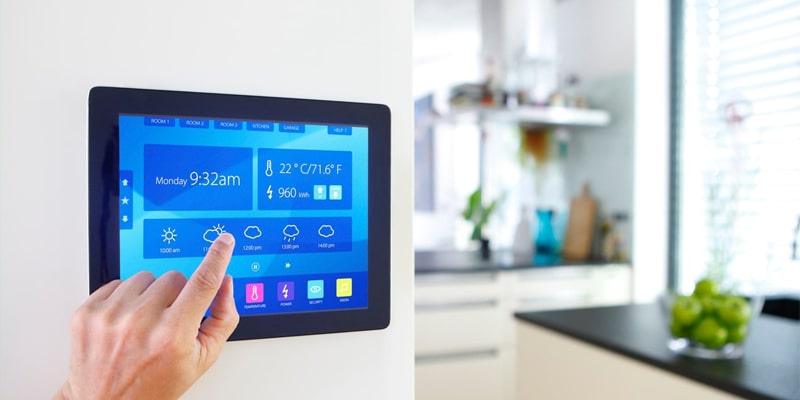
Smart gadgets have been in use for home automation for a while. However, with IoT enablement, their scope has extended tremendously to cover a range of functions. 1. Smart Homes Currently, home automation systems operate on voice commands, but in the future, they could evolve into intelligent systems that know what to do even in the absence of human voice commands. Their smart technology could extend their functionality to a range of actions that offer unmatched convenience. 2. Home Security While advanced home security systems of today have the capability of remote monitoring and safety alerts, with technological advancements, these systems will come with advanced capabilities such as fences with motion sensors that alert homeowners about unusual intrusions (as opposed to false alarms every time the pet jumps over the fence) and drones that automatically activate, based on an alert, to follow the intruders and monitor their actions. 3. Network Infrastructure In the smart home of the future, the increased number of intelligent devices will require improved network infrastructure. Gadgets need to be always connected so that they can work when needed, thereby increasing dependency on a reliable and stable Internet connection. Wi-Fi mesh or other self-configuring networks that allow multiple devices to connect to it and detect and resolve connectivity issues before it reaches the customer complaint stage will provide a more reliable smart home network in the future. 4. Personal Health & Fitness For monitoring health-related needs of every resident within the home, devices such as smartwatches, fitness trackers, smart scales and wearables such as smart clothes can help to track fitness and wellness to improve quality of life by continuously monitoring health information and updating personal fitness benchmarks. Advantages of Internet of Things (IoT) in Home Automation 1. Self-sufficient IoT enabled home automation systems can optimize available resources such as energy and water, making the home more self-reliant through water harvesting or harnessing energy from alternative sources such as solar or wind power. 2. Cost-effective While smart appliances cost significantly higher than conventional ones, by automatically regulating the thermostat or air-conditioning, switching off lights when they aren’t needed or even dimming lights based on the time of the day, they help to save energy, thereby contributing to cost savings in the long term. 3. Energy-efficient Smart homes go beyond mere energy saving to provide an eco-friendly and sustainable alternative to homeowners with features such as intelligent heating, sensor-activated stoves, water-conserving showerheads and other devices that minimize the use of energy within the home. 4. Provides Better Quality of Life With a higher degree of personalization, smart homes automate several actions, leaving homeowners with a lot more time on their hands to do what they enjoy. Moreover, since they work on voice commands, they can significantly benefit people with disabilities or even older adults or young children who find it challenging to operate appliances.



